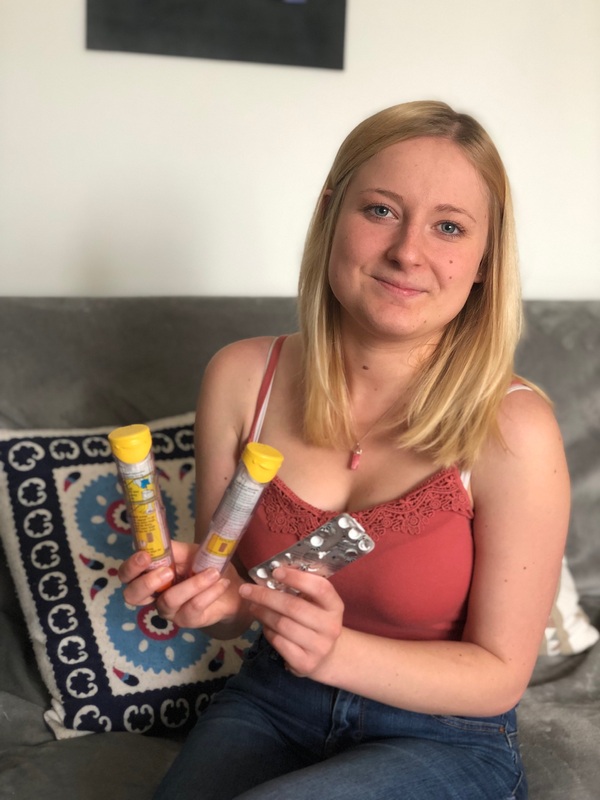Allergy Awareness Week - 3 Things to Know About Living with Severe Allergies
I was nine years old when I found out about my nut allergy. Like many children, I was hesitant to try new foods. So, when I tried a nut, I dubiously tasted it with just the tip of my tongue. I disliked it, so I put it in the bin, which probably saved my life. Minutes later, my lips and eyelids were swollen, I had diarrhoea and felt exhausted.
After tests and appointments in the following weeks, I had to start carrying around life-saving EpiPens and antihistamines, and adjust to living with a severe allergy.

Here are three things I’ve learnt about having allergies and would like others to know:
1) It can be isolating
Many social events involve food. But, eating anything I haven’t prepared myself comes with a risk. Often that risk is too high to take.
Restaurants are hit-and-miss. Some reassure me of the measures in place to make my food safe. Others refuse to serve me. Some have staff who seem clueless about allergies, so I leave. Certain cuisines use lots of nuts/nut oils, so I have to avoid those restaurants due to the huge risk of cross-contamination.
So meals out, parties, weddings, work events… they can all be difficult. I’ve often had to miss out on meals with friends and colleagues because of the restaurant choices. At times I’ve felt isolated, excluded and as though I’m an inconvenience.
Thankfully, in adult life, I face less upset and frustration because my close friends and family understand, always making sure I’m safe and included.
2) It can have a significant psychological impact
In my late teens, I reacted to a ready meal with no warning about possible nut traces. After a few mouthfuls, my lips were tingling, I had stomach cramps that made me double over, diarrhoea, a pounding headache and hives. I felt overwhelmingly tired, became wheezy and started coughing. I should’ve used my EpiPen, but wasn’t thinking clearly and so only took an emergency, double dose of antihistamines.
By the time the ambulance arrived, the antihistamines had started to improve my airway. The reaction was subsiding, but the paramedics stayed with me for over 2 hours to be sure I was ok.
After that night, I felt constantly anxious. It terrified me that the meal had no warnings and should’ve been safe. I couldn’t believe I’d risked not using my EpiPen. I thought about how differently it could’ve ended and I doubted my ability to keep myself safe.
Suddenly, I was very aware of the real and potentially fatal danger I face daily. I could barely eat. Each day I was having just half a baked potato without butter, or a few pieces of plain pasta. I lost nearly three stone in weight and became unhealthily thin.
Eventually, I went to the doctor and was referred for therapy. I built my confidence back up and regained the weight, but it took a while. Unfortunately, my experience with fear and anxiety surrounding allergies isn’t unique.
3) There’s lots of information and support available
Over the last twenty years, I’ve made use of some fantastic organisations and charities. Here are some I recommend, that you may want to check out:
- Natasha Allergy Research Foundation
See more from Becky
What to read next
The ‘Your Accessibility Guide’ portal is here! by AccessAble
Tips for enjoying a last-minute trip to the seaside by Pippa Stacey
Dry January by Ross Hovey

